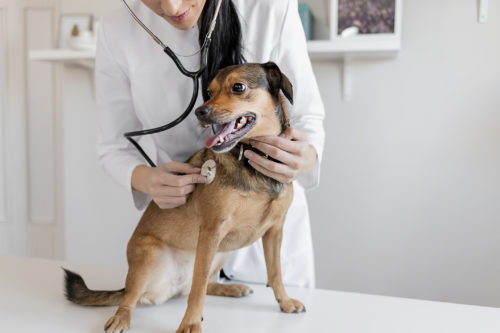
Routine fecal examinations are used to detect intestinal parasites in your pet. These parasites may include worms (such as hookworms, roundworms, and whipworms) and microscopic parasites (such as Giardia or Coccidia). Parasites not only cause intestinal disease in dogs, some of them can also be infectious to humans (hookworms, roundworms, and Giardia).
Fecal testing must be performed on fresh feces. Your veterinarian may have you bring a fresh sample from home, or they may collect a small sample directly from your animal’s rectum.
A fresh fecal sample is mixed with a special solution in a vial and either centrifuged (spun at high speeds) or allowed to sit undisturbed for a predetermined period of time. The purpose of centrifugation or undisturbed fecal flotation is to isolate parasite eggs at the top of the vial. The material that rises to the top of the vial is then examined under the microscope, to look for the presence of worm eggs and other microscopic parasites.
In some cases, your veterinarian may also perform a fecal smear. This involves placing a small amount of your pet’s feces on a microscope slide and examining it directly under the microscope, without any special processing. Fecal smears are primarily used to diagnose Giardia, although they can also be used to obtain other information about your dog’s intestinal health.
Contact our veterinary clinic to learn more about fecal testing for your pet.
